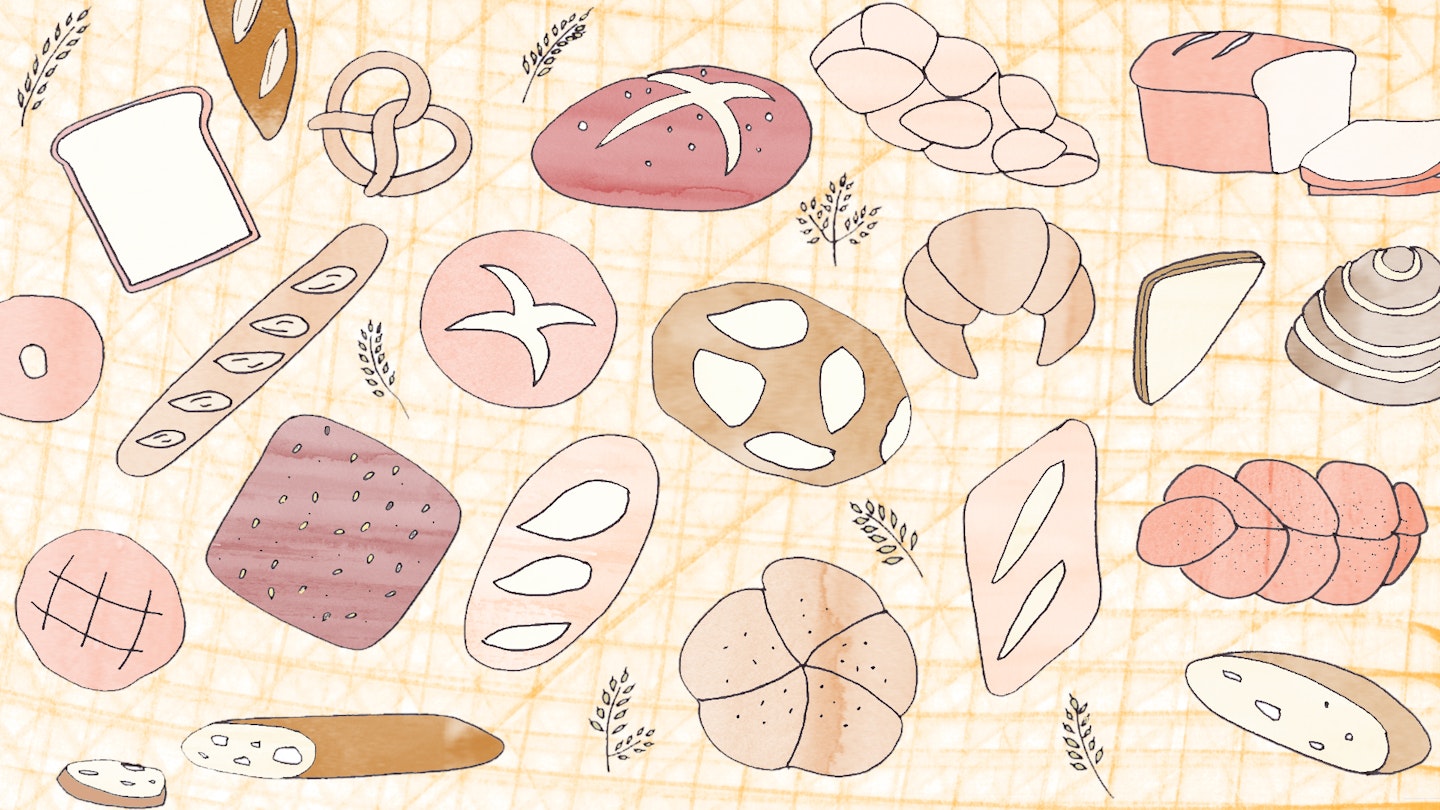There are few situations that can't be helped with toasted bread and a generous helping of butter. It's what I eat to cheer myself up when I'm ill or hungover, when I'm in need of a late night snack that's guaranteed to send me off to sleep, or with beans or fish fingers when I want a quick meal that takes no thought or cooking but feels nourishing.
It's no coincidence that bread and butter is a universal metaphor for peoples' livelihoods because it is the flour-based foundation of my life and probably many others. Whether it comes in brown slices, as a bagel or a naan, almost every culture has its variation on bread.
Yet, despite it being such a staple I spent years believing that bread was my number one enemy. It's worth saying here that I have no intolerance to gluten nor am I suffering from the debilitating coeliac disease but I'm not alone. Bread has become one of the most controversial foods of our time. It's gone from being an integral part of our meals to a victim in the war against carbohydrates. Nowadays you can even buy low-carb bread - surely a sign of just how terrified we've become of carbs.
You may have cut bread out of your life completely, like the guy you ghosted after a Bumble date. Or perhaps you just eat it now and again (breadcrumbing? Or is this a relationship metaphor too far?) You might have an uneaten loaf in your kitchen or maybe you're planning to buy a bread roll in the morning. Do you feel a tinge of guilt when you reach for that bloody delicious croissant or warm poppy seed roll in the bakery?
I did.
Registered nutritionist Laura Thomas, whose book Just Eat It: How to Get Your Shit Together Around Food comes out next January, says she's noticed a trend whereby people, including many of her clients, cutting out carbohydrates, especially bread - and traced the phenomenon back to the rise and rise of diet crazes in the West through the last few decades.
'In the 80s and 90s fat was really demonised and everyone was on a low fat diet, cutting out butter, dairy and yoghurt', she says, 'that led to a lot of diet products that were high in sugar to make them tastier'.
'Now' Thomas says, 'the pendulum has swung way too far in the opposite direction. There's a lot of scare mongering around sugar now. People have extended that and applied it to all carbohydrates it seems'. First, she cites the Atkins diet which was usurped in popularity by the Paleo dietand now the Keto dietseems to be the order of the day.
Nutritionist May Simpkin agrees and points out that these are 'all a variation of either a high protein/low carb or high fat/low carb diet'. 'I see [people cutting out bread] all the time', she says. 'Bread has been vilified for a long time and the trend has now spread to include many carbohydrate foods including rice, pasta and potatoes'.
The result of this fear surrounding carbohydrates, Thomas points out, is that 'people are arbitrarily cutting them out of their diets'. Does she think this crosses the line from being what you might call 'a problematic relationship with food' to becoming 'disordered'? 'Some people are engaging in what I would consider to be disordered eating' She says 'they're cutting out whole food groups, they're skipping meals, fasting and things like that. They might be artificially suppressing their weight. It's unlikely that most people will be able to do that long term'.
Food historian Annie Gray confirms that bread, like no other food, has always had an impact on our lives and says the backlash against it is a turning point in history.
'We've never avoided bread in the past', she says 'I think bread has always been quite literally the staff of life. Up to the mid 20th century it would have been present, a bit like it still is in France, on most peoples' tables'.
However, bread, Gray says, has always been political. 'Part of the modern anti-bread movement is probably tied up with the notion that reliance on bread is to do with poverty', she says, because it was such a staple for the working classes during the 19th and 20th centuries.
'I think there's a lot of talk about white bread/brown bread and the social connotations of those' Gray reflects, 'white bread for most of history was regarded as the one that's most aristocratic - easiest to digest, the one you want. Brown bread was the stuff of the poor. That very slowly started to change when you got to the late 19th century until the 70s and 80s when brown bread was what you ate if you were health conscious'. Indeed, it does seem that 'health conscious' is almost synonymous with educated and, by extension, middle class today.
**READ MORE: The Debrief Investigates Hormones And Mental Health **
Debrief Mad About The Pill Stats
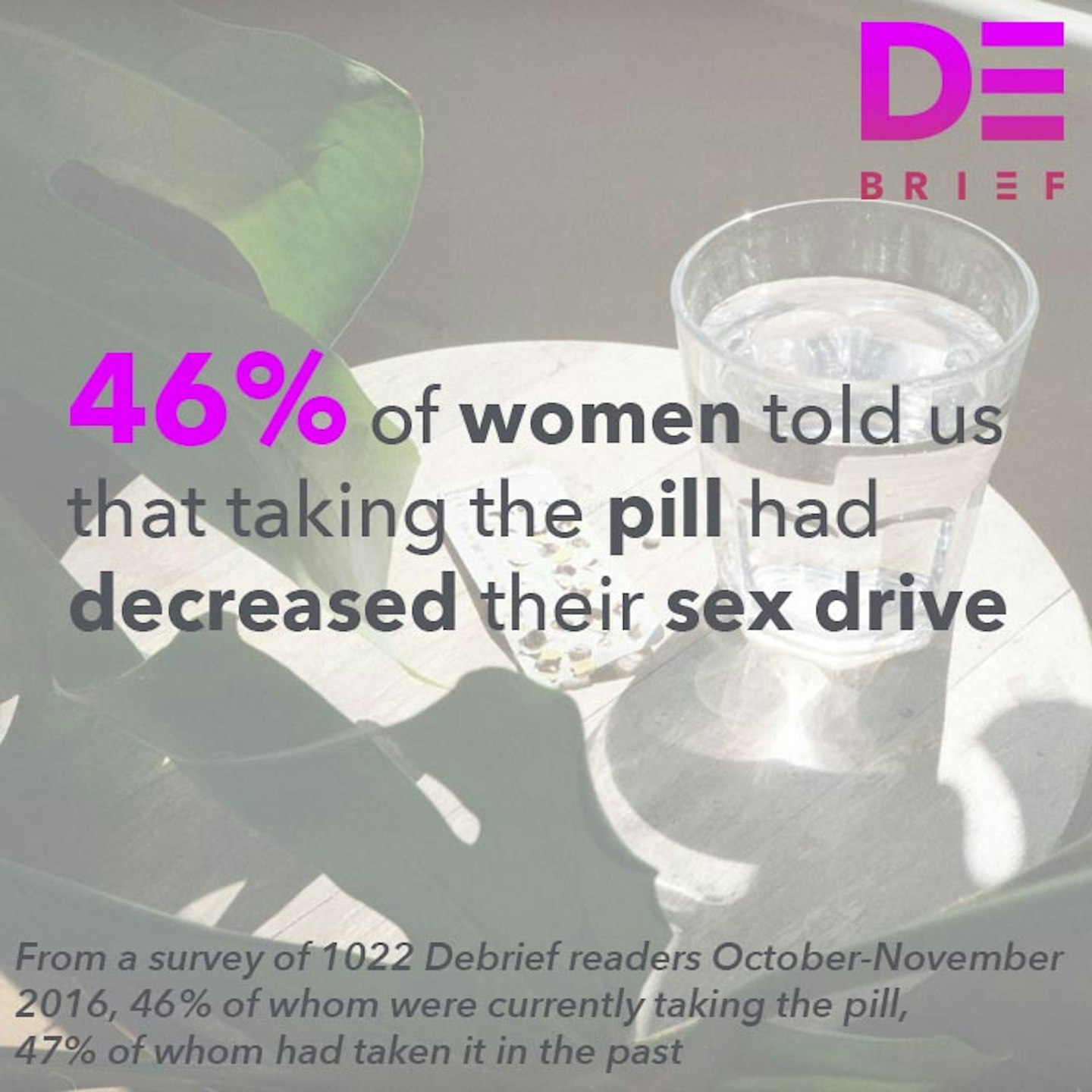 1 of 9
1 of 9Debrief Mad About The Pill Stats
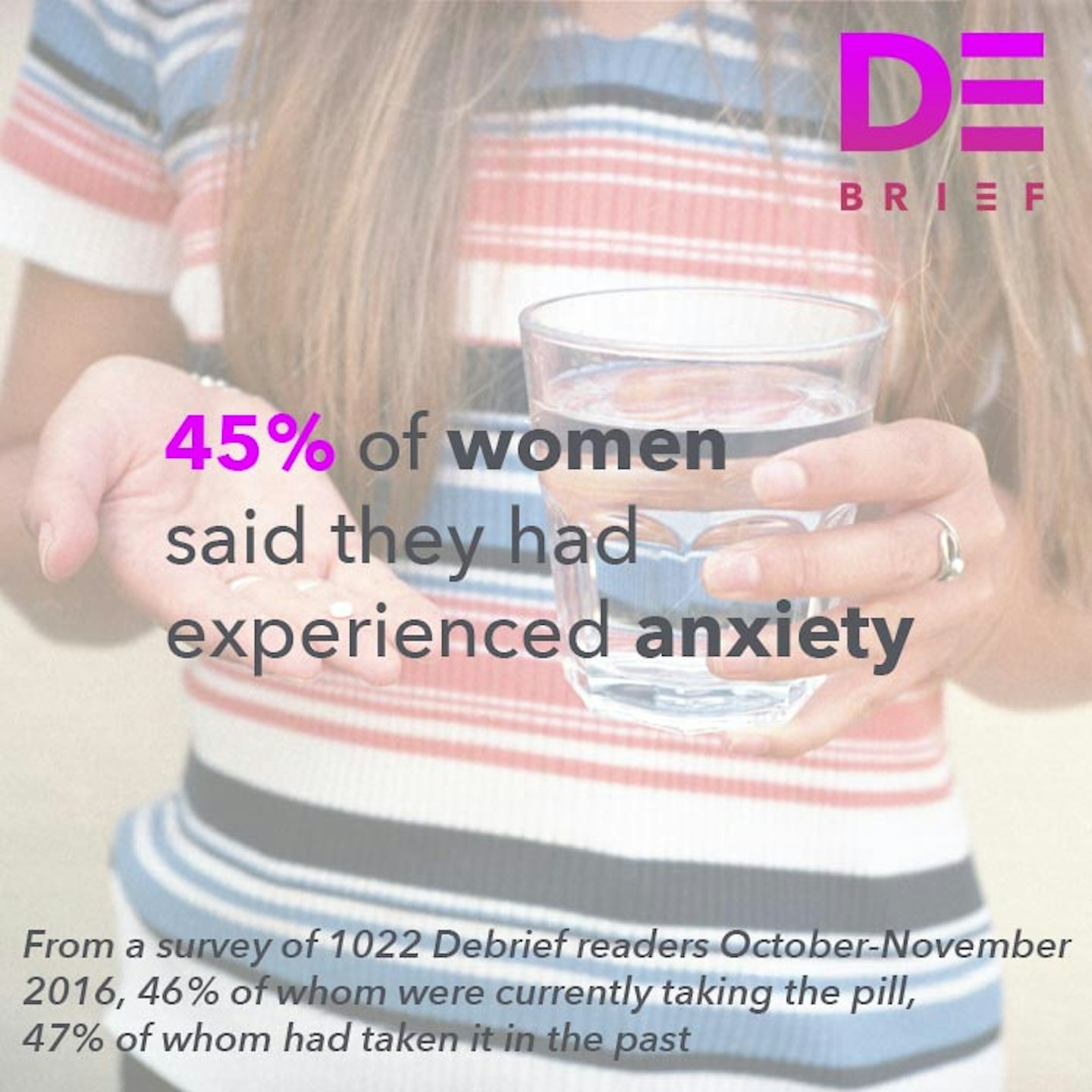 2 of 9
2 of 9Debrief Mad About The Pill Stats
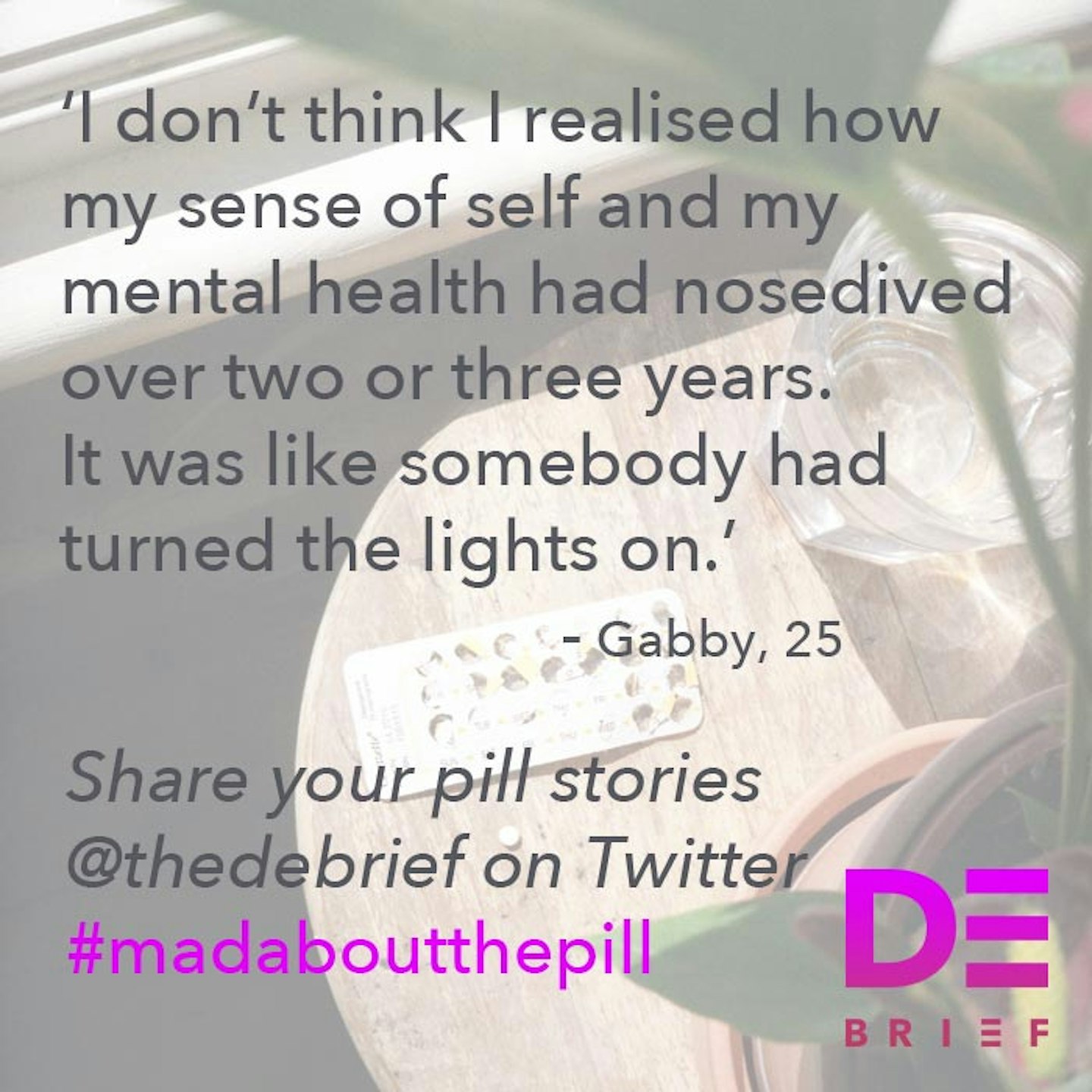 3 of 9
3 of 9Debrief Mad About The Pill Stats
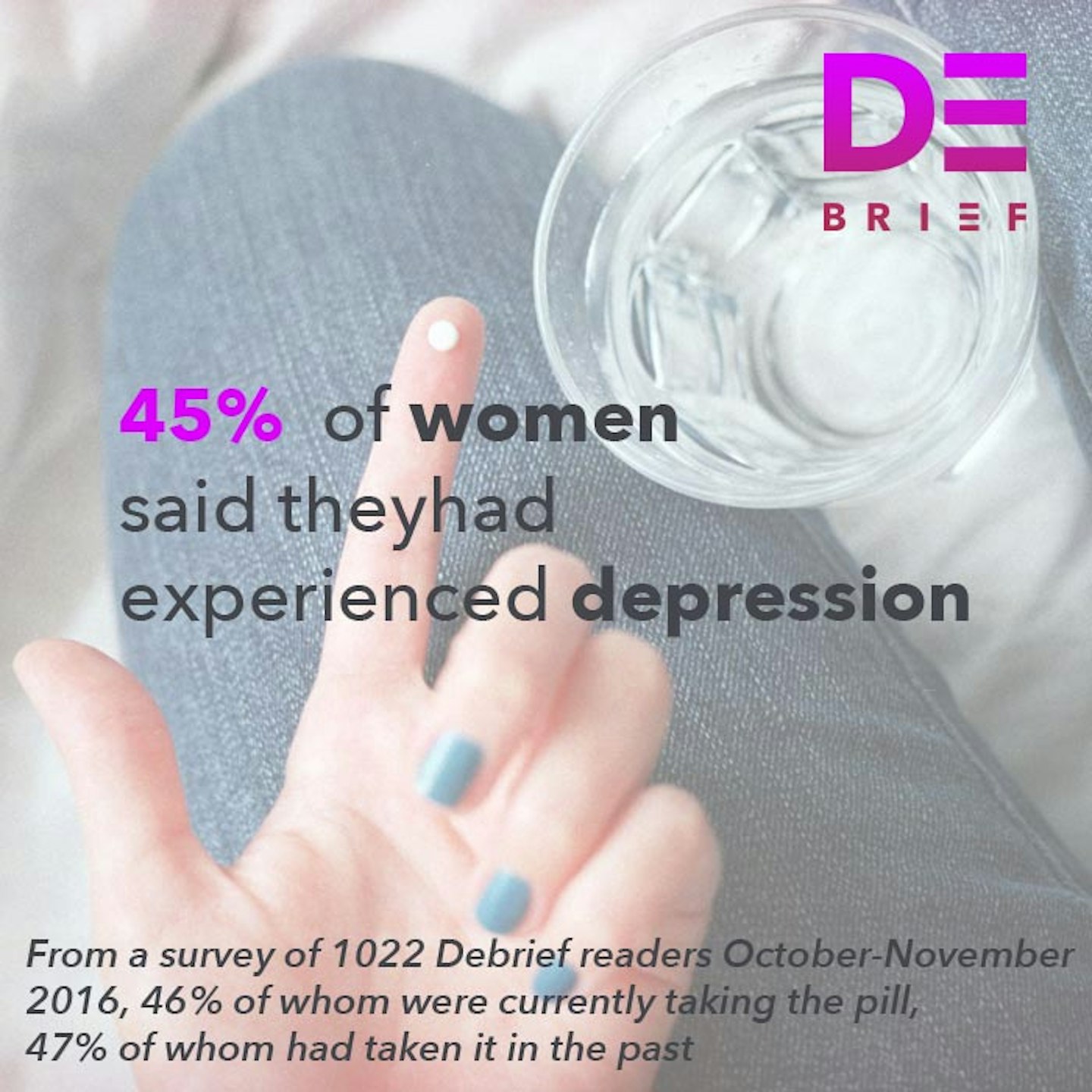 4 of 9
4 of 9Debrief Mad About The Pill Stats
 5 of 9
5 of 9Debrief Mad About The Pill Stats
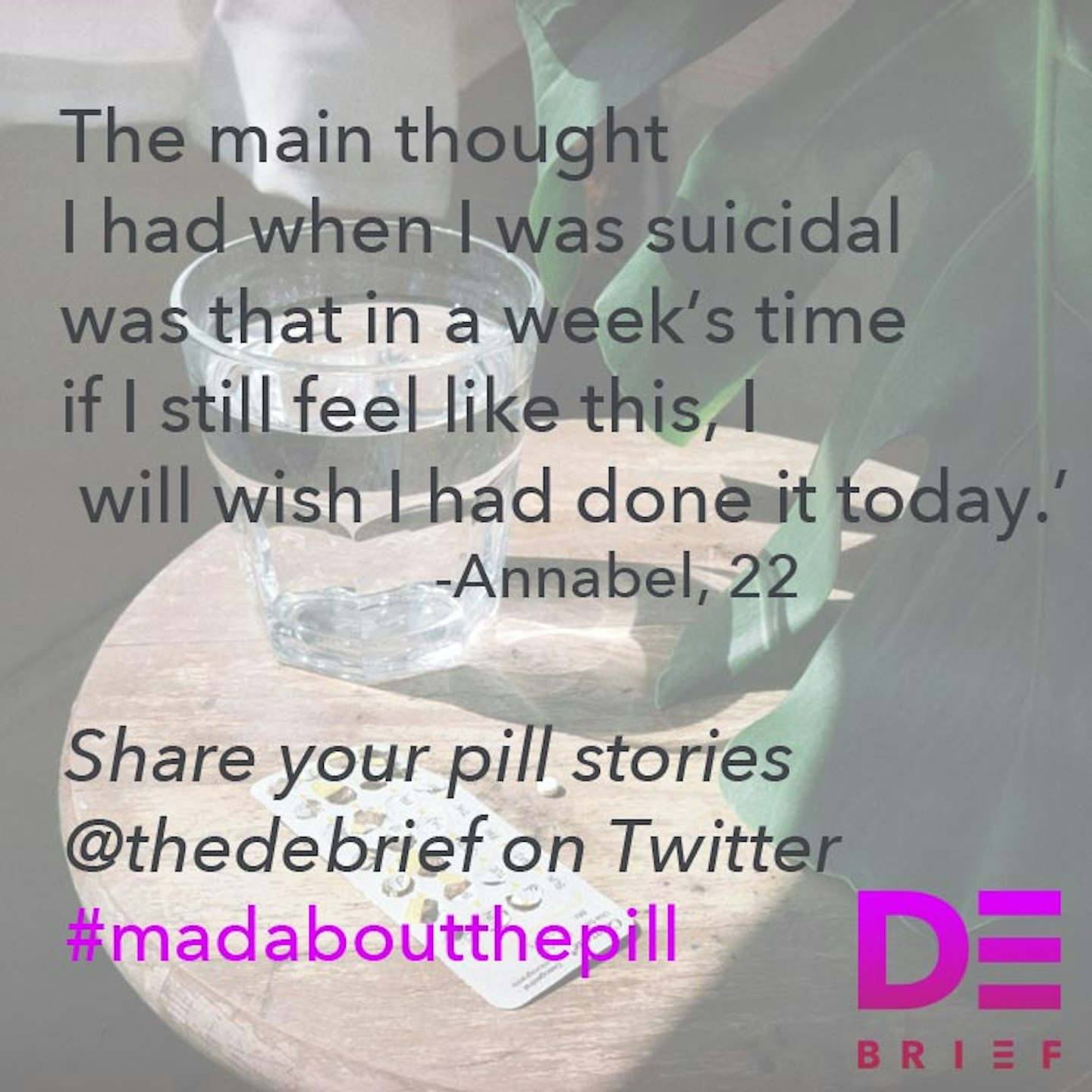 6 of 9
6 of 9Debrief Mad About The Pill Stats
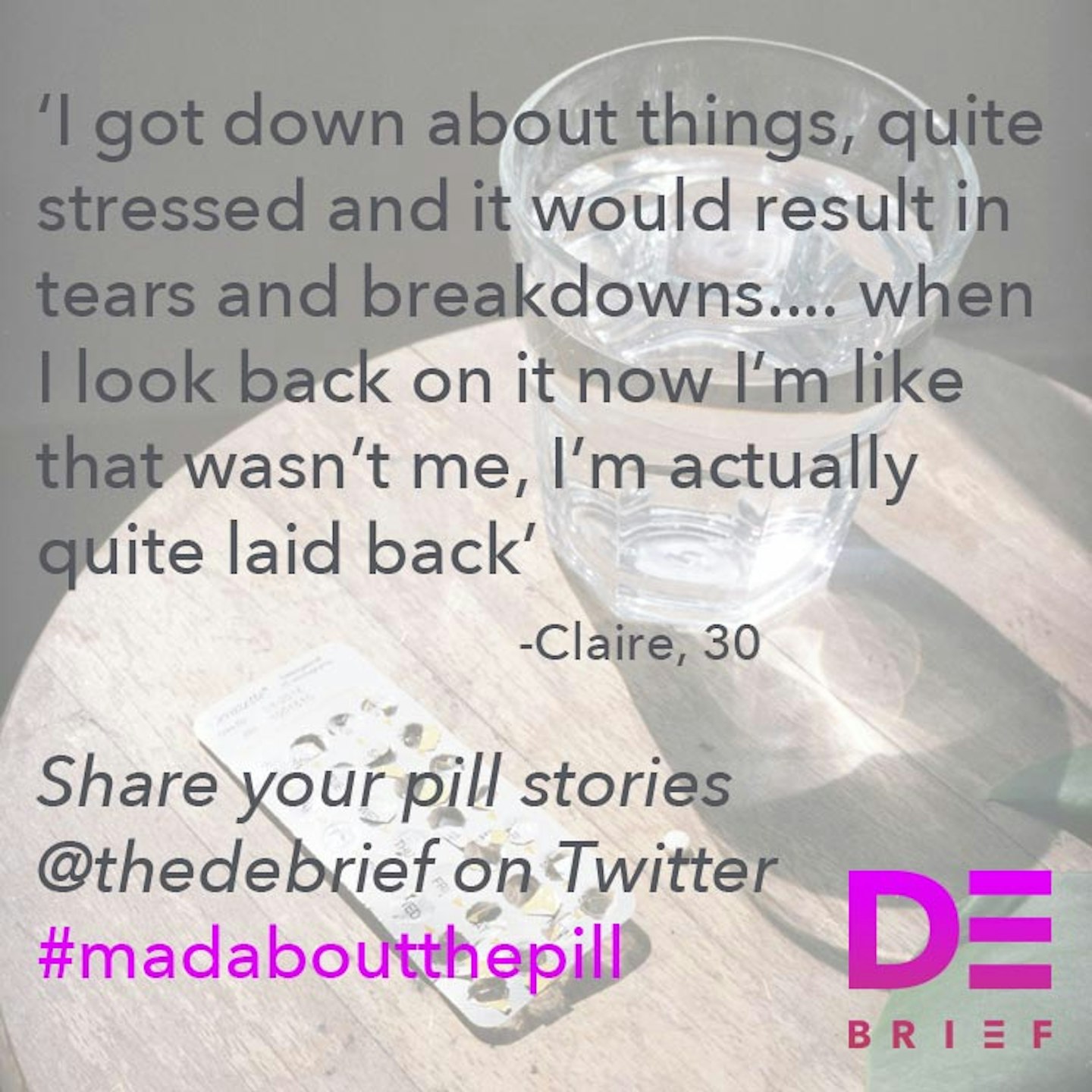 7 of 9
7 of 9Debrief Mad About The Pill Stats
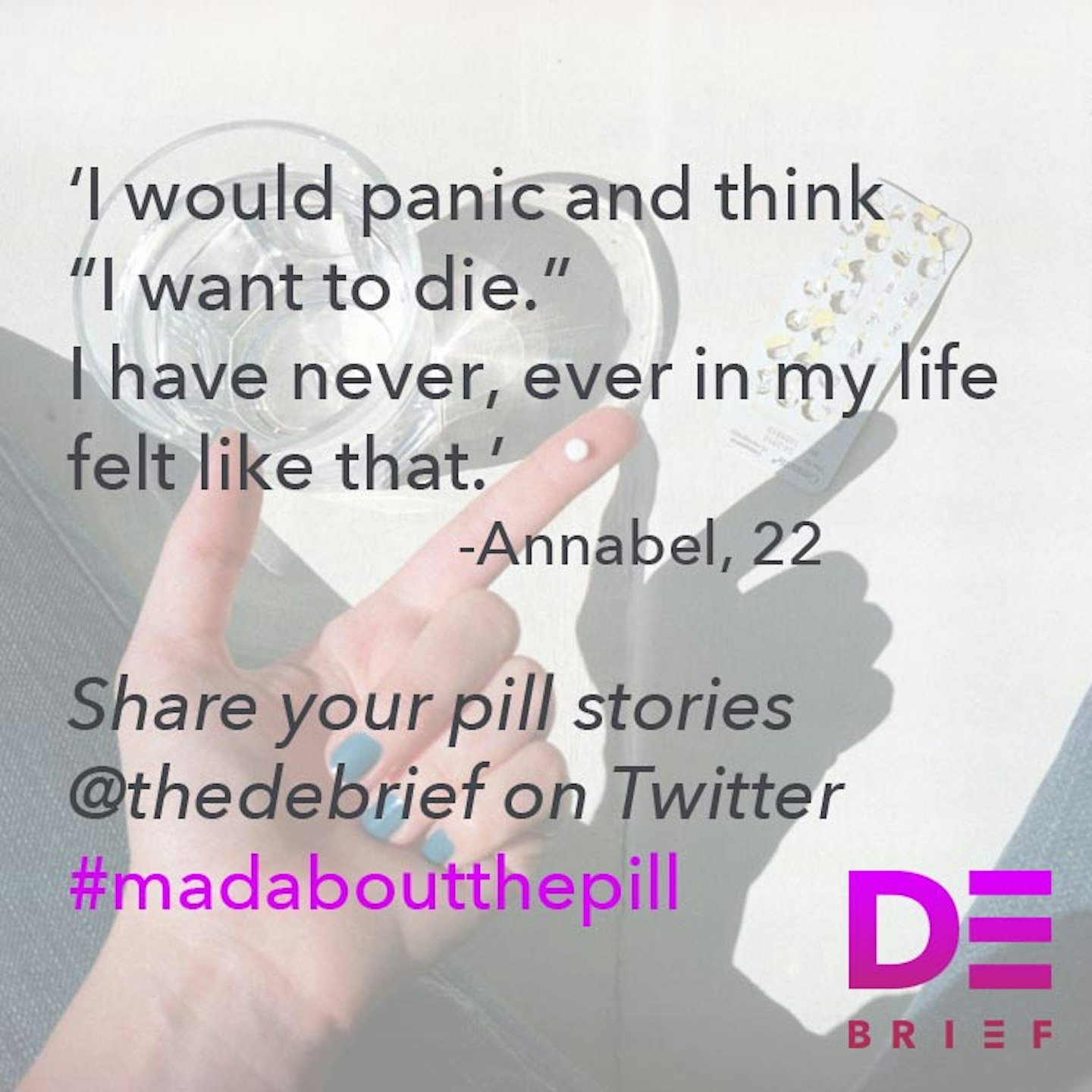 8 of 9
8 of 9Debrief Mad About The Pill Stats
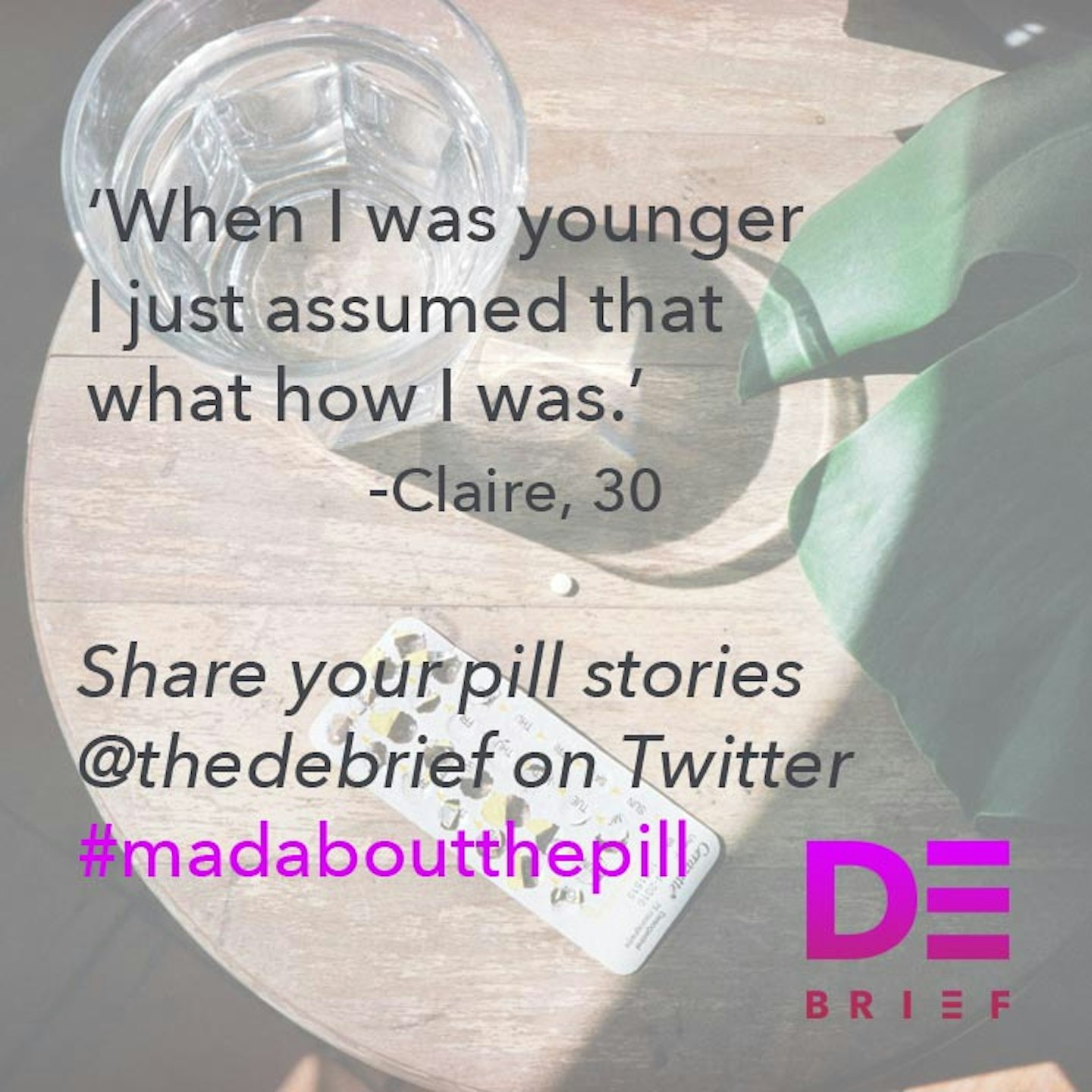 9 of 9
9 of 9Debrief Mad About The Pill Stats
Gray believes there's still a 'poverty association' with bread and that the movement against is more about what it represents rather than its contents. Somehow, she says, 'it's okay if you eat artisan sourdough rolls with spelt but if you eat white sliced bread it's still tied up with that whiff of not being conscious of your body'.
Does she think people are status conscious when it comes to bread? 'There's a lot of snobbishness about bread' Gray agrees, 'you have the anti-carb, anti-gluten brigade. The focus on bread is much more tied up with cultural notions of what bread means than perhaps what it might be'.
So, let me get this off my chest: I hate what society has made me think and feel about bread. I spent years preventing myself from eating it. I actually felt guilty. Guilty! I felt guilty for eating bread rolls in a restaurant. I'm now a fully recovered bread hater but it's been a long and bumpy road.
My most vivid memories involve food; from the cat jumping up on the table and trying to eat my spaghetti when I was seven to my dad visiting me when I worked in another city to make soup because I had to work on Christmas Day - but the food that pops up in these memories most often is bread.
Growing up, I loved the soft yet sturdy, fluffy goodness of bread. Its stable materials made it ideal for holding assorted fillings like tuna or egg mayonnaise, or mopping up sauce left on plates. It filled me up.
My grandma made these punchy white rolls filled with grated cheese and chopped-up cherry tomatoes at 12noon every day. Sometimes bits of the tomato would fall out onto the plate or kitchen roll and you'd have to scoop it up with your fingers at the end, along with stray bits of cheese.
When I was older I went to Italy and ate bruschetta for the first time - it changed my life. Warming crusty bread and rubbing it with garlic, adding tomatoes and glugs of olive oil is simple, yet mouthwateringly good. This would be part of my last meal if I ever found myself on death row.
On the first night of living in the flat I shared with my now ex, we sat on the floor eating tuna and spring onion sandwiches, surrounded by cardboard boxes. Bread was always in the background, never showing off but playing a supporting role.
And then, in my 20s I turned my back on bread because I read countless articles and watched far too many diet programmes about how we were all obese because of bread. I refused to buy it, believing it was corrupting me. Bread, I decided, was causing all my problems. Why had I let bread fester in my life for so long? Sitting there in my kitchen it was suddenly responsible for my stress, tummy issues and weight insecurities.
I'd eat salad and limited carbs for two weeks and then on Friday night, after a particularly bad week, I'd buy a whole loaf or a focaccia from Sainsbury's Be Good To Yourself and eat it all. The balance was all wrong. Bread used to bring me joy. Now it weighed me down, made me sad.
I'm not the first young woman to turn on bread and I won't be the last. Most of my friends and colleagues have over the years banished bread from their packed lunches. Zoe Woodword, 37, who teaches yoga as well as working as a PR and branding consultant, says she became scared of eating food that had gluten in it with and can't really explain why.
'I don't eat bread at all, I don't know why', she says. 'I think there's a stigma attached to [eating bread]. As a child and when I was older I ate loads of sandwiches; I have four children who all eat bread and I wouldn't tell them not to. But I could never imagine eating a sandwich now and I don't know why'.
Zoe says she thinks that seeing an increase in the number of gluten-free products available in the past 18 months triggered a reaction in her brain. Gluten is found in wheat, and similar proteins are present in barley and rye.
Meanwhile, research shows thatcoeliac disease, a serious autoimmune condition, affects 1 in 100 people in the UK. A blood test from your GP can confirm if you are a sufferer.
'Everything's offered as gluten-free now', says Zoe. 'I just thought maybe I shouldn't eat it anymore'. However, Zoe says she hasn't experienced any benefits from giving up products containing gluten. 'Something in my head has told me that it's not good', she adds, despite knowing 'it's irrational' because she doesn't have any medical reason to avoid gluten.
Nutritionist May Simpkin says many of her clients, like Zoe, have stopped eating bread without any coeliac diagnosis. 'One of my first questions to a client is: "have you been diagnosed by a doctor as a coeliac?" and the answer' she says 'is almost always "no".'
Laura Thomas points out that there are many reasons why people might feel as if they have symptoms of a wheat or gluten intolerance or allergy. 'I think we're all just generally a bit more stressed out which means that we might be experiencing symptoms of IBS' she says 'and so we think we'll cut out wheat or gluten and that will solve our problems but it might actually exacerbate the problem'.
Thomas says the 'gut-brain connection' means sometimes we might feel that we have an intolerance to food if we have a pre-conceived anxiety towards it. It's called the 'nocebo effect', she says.
'If I tell you this gluten is like sandpaper for your gut then you might start experiencing these physiological symptoms', Thomas points out 'and so you believe gluten is sandpaper for the gut'.
For me, things changed when I moved to Berlin last year. I had left a city and job that made me unhappy, taken a break working in my home city and eventually decided that I needed a new adventure. In Germany, bread is king. Not one person I've met here has had a bad word to say about bread. There are also far fewer scare-mongering articles displaying how you can lose that pesky last stone by cutting out bread and ditching carbohydrates.
With my first German flat mate, I watched in awe how she organised Sunday brunches for friends. She would lay out all kinds of cheese, apricot jam, honey, pretend salami (for veggies - it is Berlin) and brötchen! Rolls! Brötchen with loud bouncy poppy seeds, discreet sesame seeds. Rolls with pumpkin seeds and, my ultimate favourite: Laugenbrötchen.
Laugenbrötchen taste salty and have a sheen to them like they've been varnished. This, I discovered, is the lye they're dipped in. They come in pretzel form or as a little or long roll. Sometimes, I buy a huge one when I have to travel and eat it on the station platform feeling very pleased with myself.
Then there are also Berlin's many Middle Eastern restaurants and supermarkets. The Turkish supermarket round the corner from my flat does the most delicious kind of flat bread that contains tons of flour and is best shared with friends. There's a bright orange and tangy paprika dip that must be bought with it (if you want my opinion).
Moving away from the UK has helped me make peace with bread but why does it seem like us Brits have an unhealthier attitude to this food compared to our European neighbours?
Thomas puts it down to our 'ubiquitous diet culture' which leads to people (often women who the diet industry is mainly targeted at) embarking on drastic food regimes. 'It's actually hard to find examples of things that aren't diet culture in the UK' she says 'there's the promotion of the thin ideal, which, for most women and those who identify as women, is a constant source of comparison'. When faced with this, she says, we ask 'what's the easy solution?' and are told the answer is 'cutting out carbohydrates'.
We have reached a point in time where people, broadly, prefer to cut out entire food groups rather than eat everything in moderation in order to be healthy. Contemporary diet culture peddles an all or nothing mentality but the truth is that bread, like any other food, is fine in moderation.
Food historian Annie Gray argues that embarking on a strict diet or cutting out gluten could be part of a wider and ongoing identity crisis. The bread backlash, she says, is 'about identity, about belonging, finding yourself in a world where the traditional markers of who you are - class, religion, politics are now either dangerous, shifting or to some extent obsolete'.
Thomas assures me that it is 'just so wrong' to believe bread is bad for you.
'We know that bread is an important source of nutrients for a lot of people', she says 'it's a significant source of fibre, especially wholegrain bread, pasta, and in the UK we're fibre deficient anyway. Bread is really important. Even if you look at white bread, it's fortified with calcium, folic acid and iron as well. So even if you're just having beans on toast, it's a relatively valid healthy meal'.
When you put it in context and listen to what experts have to say, it's almost impossible to buy into the backlash against bread. However, as I know all too well, it isn't always that easy. I now make an effort to remember that bread isn't the enemy. I now realise that I didn't need to give up bread, I needed to change job and address my unhappiness. I was demonising bread because it was something I could control.
So, whether it's home-baked, organic, a half baguette you buy for a quick breakfast, a juicy bacon roll or simple white toast with butter, I hope you, like me, can find a way to enjoy bread for what it is: food to fill you up.
If you are suffering from an eating disorder and need support please contact BEAT
Follow Rachel on Twitter @RachLoxton
This article originally appeared on The Debrief.
